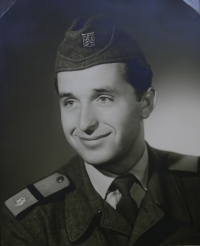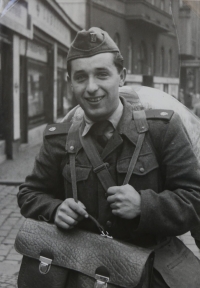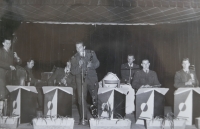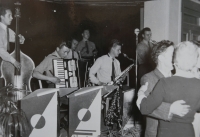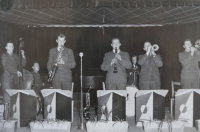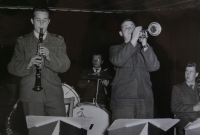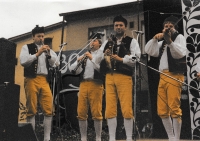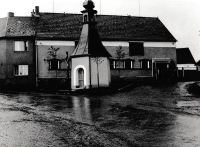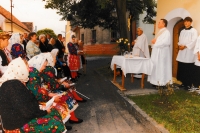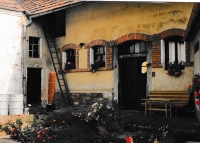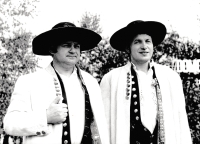My parents had to sacrifice a lot so that I could study and I am eternally grateful

Download image
Jiří Kupilík was born on the 8th of March in 1935 in Spáňov near Domažlice. His family were farmers, they owned 22 hectares of fields and forests and as the eldest child, he had to help parents since an early age. He was raised in Christian faith, with love of tradition, and music. He remembers the bombing of Plzeň at the end of the WWII, the German soldiers retreating through Klatovy, as well as the journey of prisoners of the concentration camps. The arrival of the U. S. soldiers was a beautiful experience for him. He went to basic school in Kout in Šumava and to a secondary school in Domažlice. In 1951, he enrolled as a machinist apprentice to the Holýšov Engineering Works. In exchange for his parents joining the United Agricultural Cooperative, he was allowed to study at the Secondary Technical School in Plzeň. On the first of June in 1953, he witnessed mass protests against the monetary reform in Plzeň. After he finished his studies, he got a work assignment to the Kladno branch of a Prague freezing plant where he worked as a cooling systems technician. For most of his compulsory army service, he served in the army band and he was lodged at the Lobkowicz castle in Roudnice nad Labem as a member of the Josef Haken Military Political Academy. After he was released from the army in 1958, he started a job in Škoda Plzeň as a design engineer of rolling plants, later he continued as constructions inspector, and then as the head of the engineering trade department. On the 29th of December in 1963, he got married, and had two children. Until a year before the occupation of Czechoslovakia by the Warsaw Pact armies, he was a member of the Communist Party. He played in the local symphonic orchestra, in the Song and Dance Ensemble of Škoda Plzeň and in other music ensembles. After he retired in 1996, he helped his brother with his business. His wife succumbed to a grave illness at the age of 58 so he has been living alone for twenty years. He spends time with his children, listens to musics nd enjoys his time at his cottage in Mladotice.
